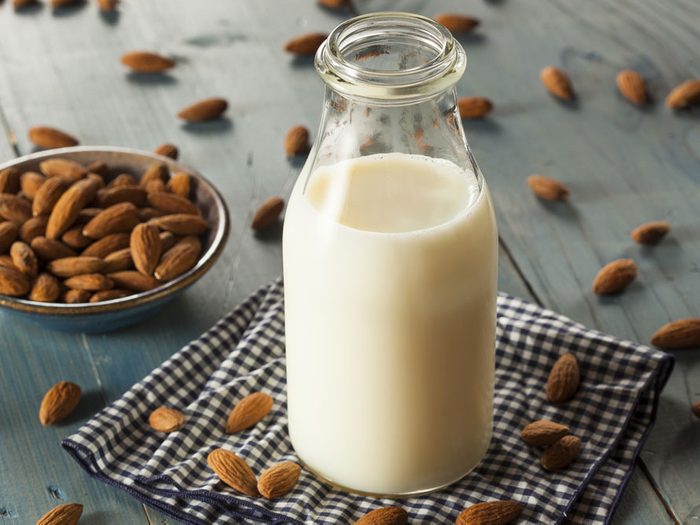
Adding nut milk to your diet
“The nutritional properties of plant-based milks depend on the plant source, processing and fortification,” according to a recent study published in Critical Reviews in Food Science and Nutrition.
The good news? According to the same study, plant-based milks can be a great alternative to cow’s milk. You just have to know what to look for.
Two basic rules for nut-milk shopping: Buy unsweetened, and get it from the refrigerated section. The shelf-stable nut milks tend to have more preservatives and artificial ingredients. Better yet, make your own. Not only are DIY nut milks fresher, some of them also have major health benefits when they’re made at home.
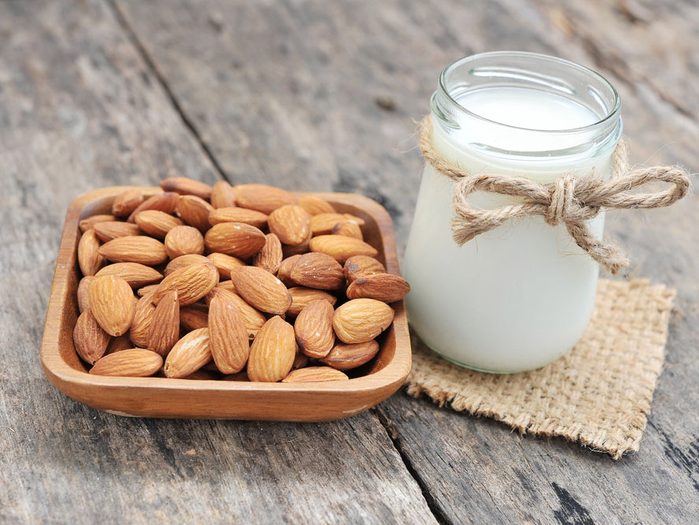
Almond milk
Best nut milk for: Weight loss
Not only does this sweet, nutty option have less than half the calories of skimmed cow’s milk (just 30 calories in one cup) it also has zero cholesterol and is low in saturated fat.
Most varieties of almond milk are fortified with vitamins and nutrients, which means just one cup provides a big dose of calcium, vitamin D and B12. Just be sure to check the label, and stick with unsweetened varieties so you don’t overdo it on the sugar.
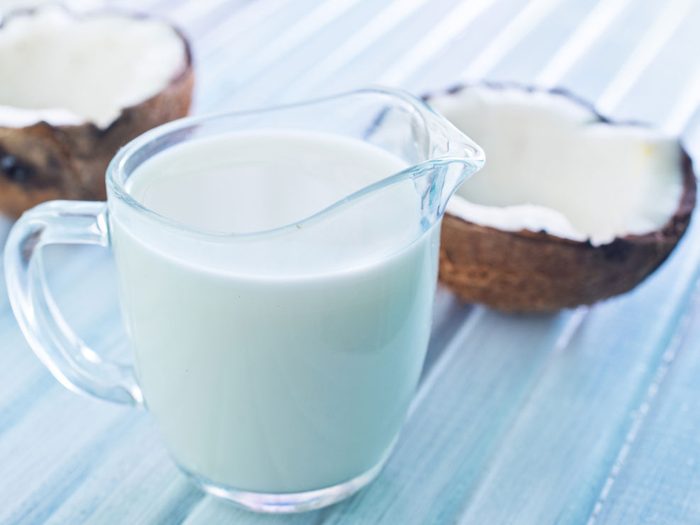
Coconut milk
Best nut milk for: Healthy fats
Not to be confused with its canned cousin (often used in curries and dessert dishes) coconut milk is a great dairy-milk substitute for those with lactose-intolerance.
While coconut milk does contain fat, it’s mostly medium chain saturated fatty acids (MCFAs).
In a study published in the Journal of Nutrition, researchers found that diets that include MCFAs can boost energy and metabolism, help burn calories and reduce body weight.
Popular unsweetened brands of coconut milk have no added sugar, as much calcium as dairy milk, and are an excellent source of vitamin D (one cup has about 45 percent of the recommended daily amount).
(Side note: Coconut is considered a nut, a seed or a fruit, depending on who you ask!)
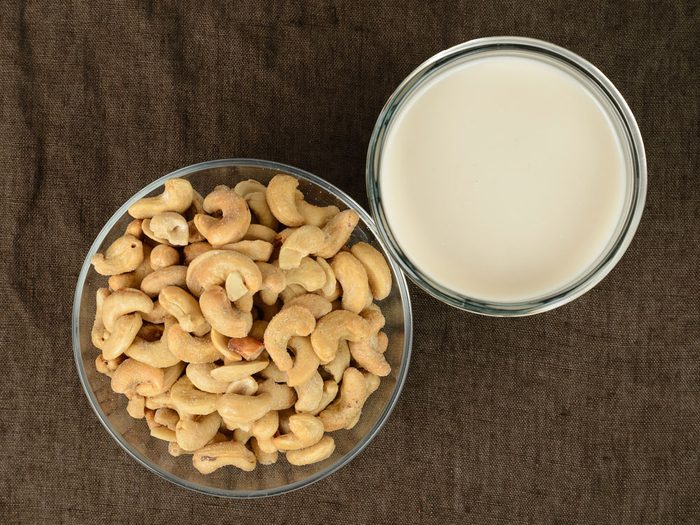
Cashew milk
Best nut milk for: A protein boost (when it’s homemade)
The great thing about cashew milk is that it’s easy to make the homemade version. Because cashews naturally turn creamy when soaked overnight and blended with water, you don’t have to strain the pulp like you do when you make other varieties of homemade nut milk (just blend the recipe ingredients and drink!).
This makes it the winner when it comes to protein. If you use one cup of cashews in your homemade cashew milk, for example, there will be about 18g of protein in the batch (whereas there’s only one gram of protein in one cup of the packaged variety).
If you opt to go the packaged route, popular brands of cashew milk have many of the same nutritional perks as almond and coconut milk, in that they’re often fortified with calcium, vitamin D and B12, among other nutrients.
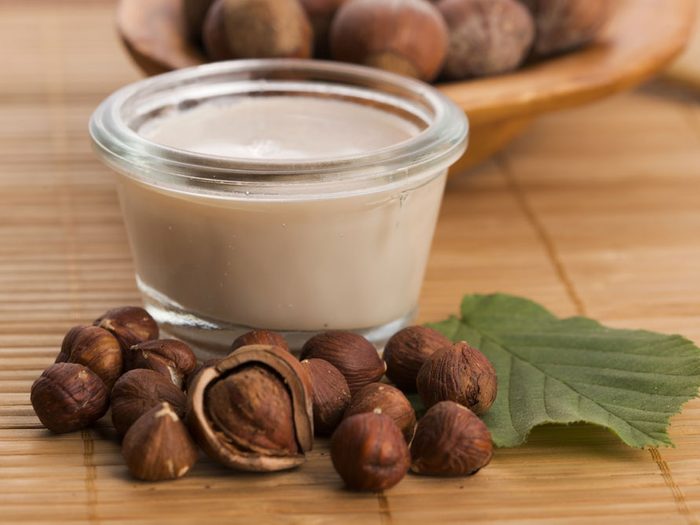
Hazelnut milk
Best nut milk for: A healthy treat
The creamiest of the crop, drinking hazelnut milk can feel like a true indulgence (especially because store-bought varieties are a bit tricky to find in Canada). Though you’ll be happy to know it’s healthier than it tastes. One cup contains 10 percent of the daily recommended amount of vitamins A and E, as well as 30 percent of daily calcium and 25 percent of daily vitamin D. It also has the most protein of packaged nut milk options, at two grams per cup.
Related:
• What’s the Deal with Milk Substitutes?
• Which Type of Milk do you Drink?
• 10 Lactose-Free Breakfast Options
